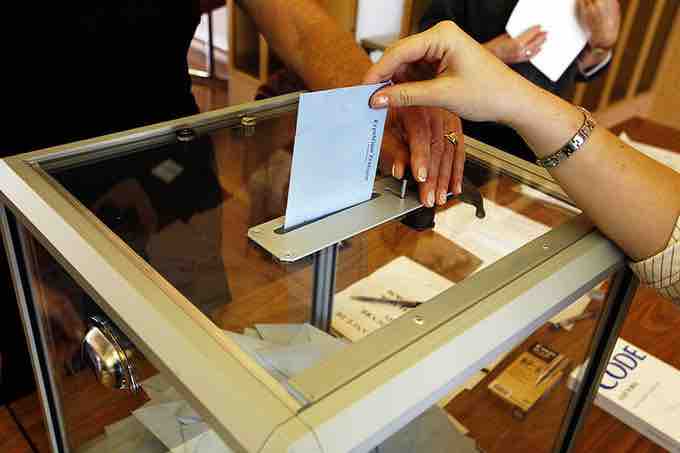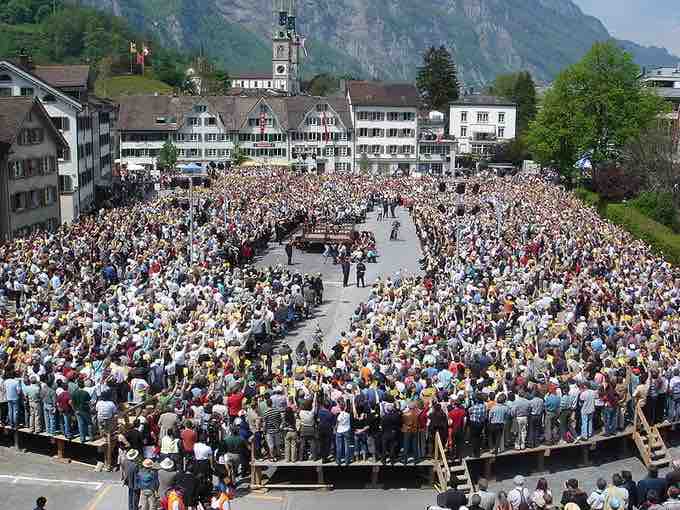Introduction
Democracy is a form of government in which all eligible citizens have an equal say in the decisions that affect their lives. Democracy allows people to participate equally—either directly or through elected representatives—in the proposal, development, and creation of laws. It encompasses social, economic, and cultural conditions that enable the free and equal practice of political self-determination. The term originates from the Greek word: δημοκρατία (dēmokratía), which translates to "rule of the people". This term was used around 400 BCE to denote the political systems then existing in Greek city-states, notably Athens.
A democratic government contrasts two forms of government where power is either held by one, as in a monarchy, or where power is held by a small number of individuals, as in an oligarchy or aristocracy. Nevertheless, these oppositions, inherited from Greek philosophy, are now ambiguous because contemporary governments have mixed democratic, oligarchic, and monarchic elements. Several variants of democracy exist, but there are two basic forms, both of which concern how the whole body of citizens executes its will: direct democracy and representative democracy .

French Presidential Election
A woman casts her vote in the second round of the French presidential election of 2007.
Direct Democracy
Direct democracy is a form of democracy in which people vote on policy initiatives directly. This is different from a representative democracy, in which people vote for representatives who then vote on policy initiatives. Depending on the particular system in use, it might entail passing executive decisions, making laws, directly electing or dismissing officials, and conducting trials. Two leading forms of direct democracy are participatory democracy and deliberative democracy.
The earliest known direct democracy is said to be the Athenian Democracy in the 5th century BCE, although it was not an inclusive democracy; women, foreigners, and slaves were excluded from it. In the direct democracy of Athens, the electorate did not nominate representatives to vote on legislation and executive bills on their behalf (as in the United States Congress), but instead voted on these items in their own right. Participation was by no means open, but the in-group of participants was constituted with no reference to economic class and they participated on a large scale. The public opinion of voters was remarkably influenced by the political satire performed by the comic poets at the theaters.
Also relevant is the history of Roman republic, beginning circa 449 BCE. The ancient Roman Republic's "citizen lawmaking"—citizen formulation and passage of law, as well as citizen veto of legislature-made law—began about 449 BCE and lasted the approximately 400 years to the death of Julius Caesar in 44 BCE. Modern-era citizen lawmaking began in the towns of Switzerland in the 13th century CE. In 1847, the Swiss added the "statute referendum" to their national constitution. Currently in Switzerland, single majorities are sufficient at the town, city, and canton level, but at the national level, double majorities are required on constitutional matters. The intent of the double majorities is simply to ensure any citizen-made law's legitimacy .

Swiss Assemblies
Landsgemeinde, or assembly, of the canton of Glarus, May 7, 2006, Switzerland.
Representative Democracy
Direct democracy was very much opposed by the framers of the United States Constitution and some signatories of the Declaration of Independence. They saw a danger in majorities forcing their will on minorities. As a result, they advocated a representative democracy in the form of a constitutional republic over a direct democracy. For example, James Madison, in Federalist No. 10, advocates a constitutional republic over direct democracy precisely to protect the individual from the will of the majority. Representative democracy is a variety of democracy founded on the principle of elected people representing a group of people. For example, three countries which use representative democracy are the United States of America (a representative democracy), the United Kingdom (a constitutional monarchy) and Poland (a republic). It is an element of both the parliamentary system and presidential system of government and is typically used in a lower chamber such as the House of Commons (UK) or Bundestag (Germany).
Democracy in the Contemporary World
According to Freedom House, in 2007 there were 123 electoral democracies – up from 40 in 1972. According to World Forum on Democracy, electoral democracies now represent 120 of the 192 existing countries and constitute 58.2 percent of the world's population. At the same time, liberal democracies—countries Freedom House regards as free and respectful of basic human rights and the rule of law—are 85 in number and represent 38 percent of the global population. In 2010 the United Nations declared September 15 the International Day of Democracy.